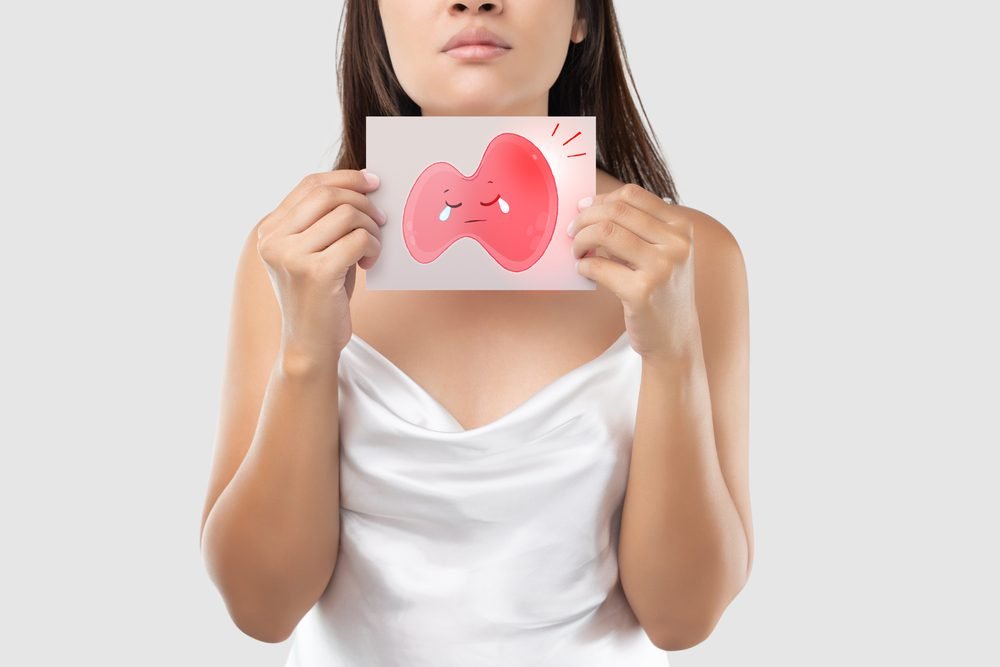People often ask are there really 200 Hypothyroid Symptoms? HYPOTHYROIDISM is a condition in which the THYROID GLAND, located at the base of the neck, fails to produce enough THYROID HORMONE. This vital hormone is responsible for regulating ALL ASPECTS of your METABOLISM, and when it is in short supply, it can have a wide range of negative effects on your body. If you suffer from hypothyroidism, the number one CAUSE being an AUTOIMMUNE DISEASE known as HASHIMOTO’S, you may experience any number of hypothyroid symptoms, including fatigue, weight gain or loss, cold intolerance, hair loss, and more. In fact, the list of potential symptoms is shockingly long, with over 200 possible signs that you may have an underactive thyroid.
While it is important to note that everyone is different, and not all symptoms will present in every person, understanding the range of potential symptoms is crucial to getting an accurate diagnosis and proper treatment for hypothyroidism. Unfortunately, many doctors overlook this condition, leading to MISDIAGNOSIS and inadequate treatment that can leave patients suffering unnecessarily. To help you better understand the impact that hypothyroidism can have on your body, we’ve compiled a comprehensive list of the most common symptoms, broken down by category.
Energy Level and Sleep
Chronic, often extreme fatigue
Less stamina than others
Long recovery period after any activity
Brain fog/Inability to concentrate
Sleep apnea
Snoring
Insomnia
Need naps in the afternoon
Weakness
Wake feeling tired
Frequently oversleep
Weight
Weight gain
Inability to lose weight
Ascites (abdominal fluid accumulation)
Metabolic Syndrome
Weight loss
Anorexia
Heightened appetite
Diminished appetite
Obesity
Body Temperature
Cold extremities
Cold sweats
Night sweats
Heat intolerance
Cold intolerance
Internal shivering
Hypothermia
Cold hands
Clammy palms
Cold feet
Excessive perspiration
Little perspiration
Low basal body temperature (below 97.8 degrees Fahrenheit)
Slowness
Slow movements
lowed Achilles reflex
Diminished reflexes
Slow speech
Infections
Frequent infections
Chronic illness
Low immune system
Frequent colds
Frequent flus
Susceptibility to bronchitisHard time recovering from infections
Recurrent sinus infections
Recurrent skin infections
Recurrent ear infections
Recurrent nose infections
Recurrent throat infections
Candida (yeast)
Pelvic Inflammatory Disease (PID)
Repeated urinary tract infections
Upper respiratory tract infections
Related Autoimmune or Endocrine Diseases
Hashimoto’s disease
Graves’ disease
Celiac disease
Type 1 diabetes
Type 2 diabetes
Insulin Resistance
Addison’s disease
Cushing’s disease
Pernicious Anemia
Premature ovarian decline
Premature ovarian failure
Alopecia
Reynaud’s syndrome
Sjögren’s syndrome
Chronic fatigue syndrome
Rheumatoid arthritis
Systemic lupus erythematosus
Multiple sclerosis
Sarcoidosis
Scleroderma
Vitiligo
Psoriasis
Swelling and Thickened Skin of the Following
Eyes
Face
Lips
Neck
Hands
Arms
Legs
Fatigue and Weakness
Weight Gain and Fluid Retention
Cold Intolerance
Constipation
Dry Skin and Hair
Muscle and Joint Pain
Depression and Mood Swings
Heavy or Irregular Menstrual Periods
Infertility
High Cholesterol
Slow Heart Rate
Memory Problems
Diagnosing Hypothyroidism
If you suspect that you have hypothyroidism, it’s crucial to get an accurate diagnosis from a qualified medical professional. Diagnosis usually involves a physical examination, blood tests, and medical history review. Your doctor may also order additional tests, such as an ultrasound, to check for any abnormalities in your thyroid gland.
Managing and Treating Hypothyroidism
Once diagnosed with hypothyroidism, there are several ways to manage and treat the condition. The most common CONVENTIONAL treatment is HORMONE REPLACEMENT, which involves taking a SYNTHETIC thyroid hormone daily to replace the missing hormones in your body. This therapy can help alleviate the symptoms associated with hypothyroidism and prevent complications, but rarely solves the underlying ROOT CAUSE, especially in the case of AUTOIMMUNE THYROID (HASHIMOTO’S).
In addition to hormone replacement therapy, your FUNCTIONAL MEDICINE healthcare provider can suggest LIFESTYLE CHANGES that can also help manage the symptoms of hypothyroidism. Eating a healthy diet, taking specific, WHOLE FOOD SUPPLEMENTS that support the thyroid gland, getting regular exercise, and STRESS management can all help improve your overall health and well-being.
Conclusion
In conclusion, hypothyroidism is a common medical condition that can cause various symptoms that can affect different parts of the body. Early diagnosis and proper treatment are crucial to managing the condition and preventing complications. By understanding the symptoms, diagnosis, and treatment options available, you can take the necessary steps to manage your hypothyroidism and live a healthier life.

Dr. Bob was born and raised in Florham Park, New Jersey.
He loved the philosophy of vitalism, which teaches about the incredible, innate intelligence of our bodies and its power to self-heal when given the opportunity.


0 Comments